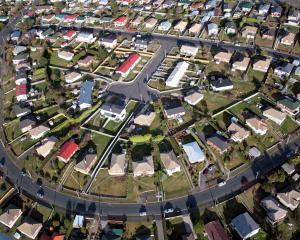
Union and Labour Party critics, some highly placed, say it is "too orthodox" to generate the "transformation of our society and economy" Grant Robertson trumpeted to the media in the pre-release Budget lockup.
Their point: spending hovers around 28% of GDP, where Bill English got it to. Why not 30%? Government net debt is down to 21%, far below that of other advanced economies.
The National Party has joined in with accusations that phasing brightline promises such as doctors' visit subsidies and more police are "broken promises".
Out of the other side of National's mouth, finance spokesperson Amy Adams has in effect attacked Mr Robertson's critics on the left by alleging his slower net debt track down to 20% of GDP (2022 instead of 2020) will burden future generations.
Mr Robertson in the media lockup: fiscal discipline is something ministers "owe to future generations".
The discipline is in the "fiscal responsibility rules" agreed with the Greens in March 2017 to tell business and other doubters they would be careful, creditable and creditworthy. If Mr Robertson is to get the more "productive" economy he wants he needs business to keep investing and hiring.
A senior minister phrases this as "a licence to govern". That "licence" also needs the three coalition partners lined up. Ms Ardern insists ministers negotiated full consensus on the whole Budget.
Recently - and in the Budget - Mr Robertson has added another reason to be "prudent": to weather shocks like earthquakes or global political or economic convulsions such as those which skewed Mr English's early budgets.
In fact, Mr Robertson has one already: the mycoplasma bovis cow epidemic, costed at $85million so far but perhaps many times that.
The International Monetary Fund last month worried that global debt tripled between 2001 and 2016 to a record $US164trillion ($NZ238trillion) and is 40% higher than 10 years ago. Others point to a rapid rise in "shadow banking" and corporate debt.
Here household debt is a towering 168% of disposable income.
A big shock would require higher spending (cash for those who lose jobs or worse) from lower revenue and so more borrowing. If interest rates also rose, that would bump fiscal costs and hit stretched mortgage-holders. So, Mr Robertson says in the Budget, the fiscal trajectory must not put pressure on monetary policy.
The "licence to govern" also directs the Government to what Ms Ardern calls "pragmatic idealism": a "just transition" to the different economy, not a radical upheaval like that of the 1980s which split the Labour Party three ways.
In this Budget there is more pragmatism than transition. The great bulk of the additional spending financed by cutting National's tax cuts and stronger revenue over the past six month is committed to plugging operational and infrastructure holes ministers say they have found in health, education, housing, other social assistance, foreign affairs capability and defence.
Even in environment and climate change policy the budget's tone is more making up for what National did not do than bold new steps into a green future, though there is James Shaw's $100million green investment fund and preliminary work on a climate commission and more can be expected in future budgets.
Likewise, the tax working group has yet to demonstrate it will do a first-principles review that at times in opposition Mr Robertson seemed to edge towards. Likewise, his "future of work forum" with Business New Zealand and the Council of Trade Unions has a big, long job ahead if it is to truly prepare for the 2020s different work environment.
And the Budget's trumpeted research and development 2027 ambition of 2% of GDP (including business investment) will still leave New Zealand below the 2.38% OECD average and far below five of the six small advanced economies New Zealand compares itself with. Will that "future-proof the economy", as Mr Robertson claims in the Budget?
So is this "Foundations for the Future" Budget just foundations or does it chart a forward a path?
Yes, if you look hard, on page 8 of its fiscal strategy report. That points towards a "wellbeing" Budget in 2019. Behind-scenes the Treasury is hard at work on this.
The idea is a range of indicators reaching across portfolios, monitored by cabinet committees, measuring if natural, social and human capital are rising or falling and so account in future budgets not just for economic output but for how well the environment and people's lives are.
Ms Ardern has taken one small step with her child poverty reduction target in the Public Finance Act. But it is a long path, probably stretching well into a second term, if she can get one.
One Budget does not a government make.












